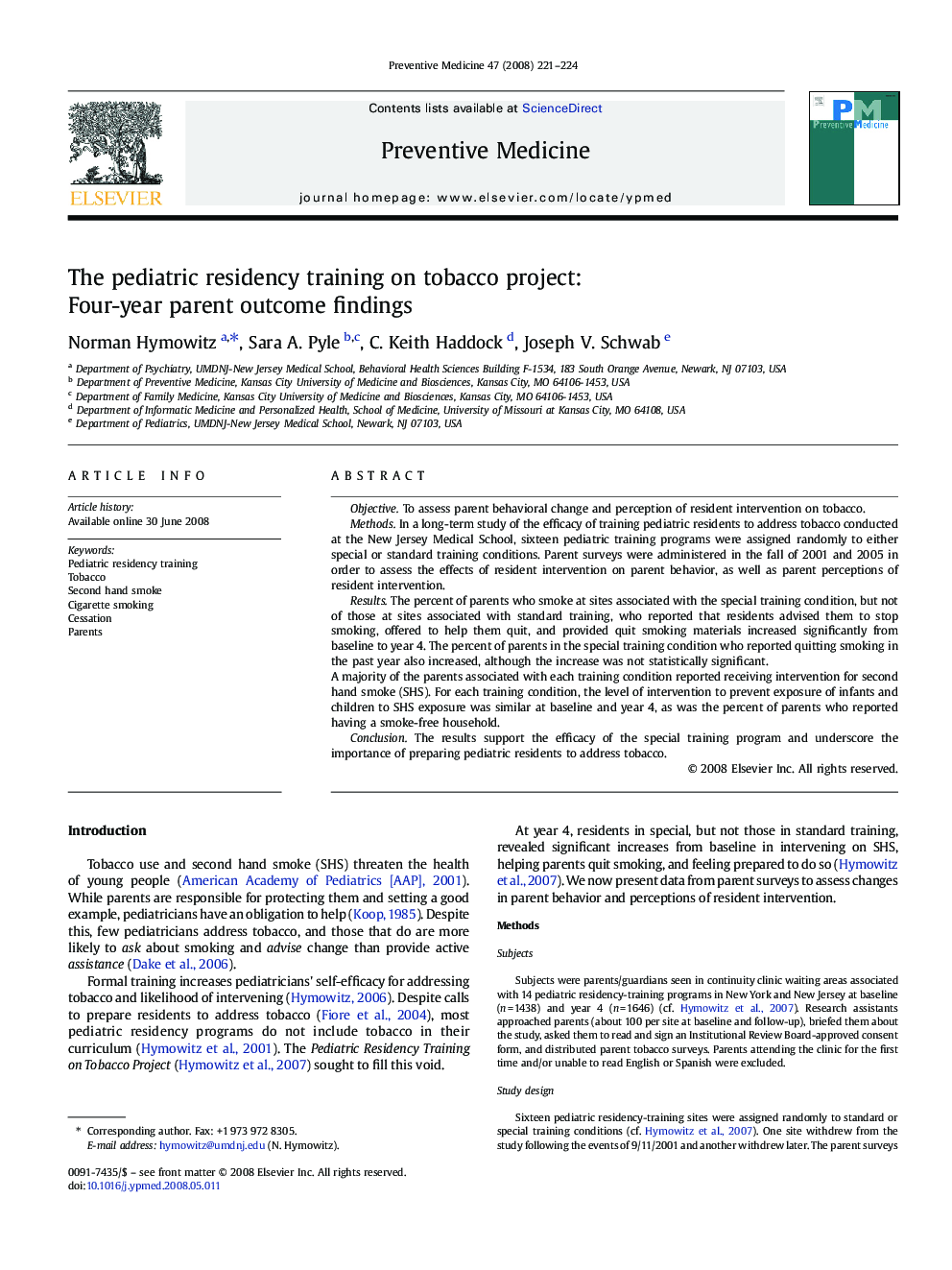| Article ID | Journal | Published Year | Pages | File Type |
|---|---|---|---|---|
| 3101542 | Preventive Medicine | 2008 | 4 Pages |
ObjectiveTo assess parent behavioral change and perception of resident intervention on tobacco.MethodsIn a long-term study of the efficacy of training pediatric residents to address tobacco conducted at the New Jersey Medical School, sixteen pediatric training programs were assigned randomly to either special or standard training conditions. Parent surveys were administered in the fall of 2001 and 2005 in order to assess the effects of resident intervention on parent behavior, as well as parent perceptions of resident intervention.ResultsThe percent of parents who smoke at sites associated with the special training condition, but not of those at sites associated with standard training, who reported that residents advised them to stop smoking, offered to help them quit, and provided quit smoking materials increased significantly from baseline to year 4. The percent of parents in the special training condition who reported quitting smoking in the past year also increased, although the increase was not statistically significant.A majority of the parents associated with each training condition reported receiving intervention for second hand smoke (SHS). For each training condition, the level of intervention to prevent exposure of infants and children to SHS exposure was similar at baseline and year 4, as was the percent of parents who reported having a smoke-free household.ConclusionThe results support the efficacy of the special training program and underscore the importance of preparing pediatric residents to address tobacco.
